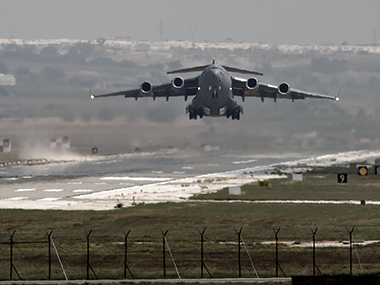Is global terrorism merely a policing problem? The sharper the intelligence networking among big powers and the tougher the approach to the perpetrators of terrorist actions, the weaker terror becomes. This appears to be the wisdom going around after the Paris incident. There’s nothing gross about this line of thinking, the only problem is we have seen such responses earlier, after every such attack, and they have not helped us address the problem at hand any better. It shows either that we either take terrorism as a low-brained criminal activity, or we cannot make head-nor-tail of the matter. Prime Minister Narendra Modi wants a definition for terrorism and a strong collective global response to it. France promises to be very harsh on the perpetrators of the Paris killers and goes about intensifying its operations in Syria and back home. US president Barack Obama tells the G-20 summit that the perpetrators will be hunted down. Fine. [caption id=“attachment_2458310” align=“alignleft” width=“380”] Representational image. AP[/caption] The anger is justified, so is the collective call for retribution. The mastermind behind the killing needs to be punished. But do we have a clear idea who the enemy is? Not by a long stretch. After the 11 September, 2011 attacks, the US believed it could ‘shock and awe’ them with the scale of action, and ‘smoke them out’. After a long, expensive engagement in Afghanistan — both in terms of manpower lost and the logistics of waging a war in a faraway inhospitable terrain — it has little to show by way of concrete result. Yes, it has managed to hunt down its prime target Osama bin Laden, but that has hardly stopped terror operatives in the region. Western powers have been engaged in covert and overt operations against the Islamic terrorists — Islamic State or by whatever name they go these days — in West Asia and adjoining regions for some time now. There’s no conclusive victory yet. Perhaps there’s a flaw in the global view of the problem at the fundamental level. If the war against terror was all about bombing ‘them’ out of existence, defanging ‘them’ and containing ‘them’ to geographies, it would have worked already. This is the typical policing approach. You are dealing with rogues with guns who have gone out of control. But the reality is global terrorism has gone far beyond that. It is much more seamless and fluid structurally. It feeds on individual and collective grievances and sense of hurt and with religion — Islam in this case — as the anchoring theme it has taken the shape of an ideology. It’s a dangerous ideology and it has found a vehicle in abstract networking via technology. Policing cannot eliminate an ideology; it becomes more difficult when it seeps to the level of the autonomous individual. How many places can you protect or for how long can you insulate your country from attacks when individuals chose to blow themselves up? The solution is to take on this ideology at a more human level and stop it from finding new converts. It may not be politically correct at this point — at least not when India wants to be counted among the big powers — to mention who created the monster in the first place. But it must be said. The Taliban, al-Qaeda and the likes of Osama bin Laden would not have existed if the US didn’t actively promote ideologically-driven thugs to fight its Cold War against Russia. Iraq would not be such a dangerous place if the US had not brought down Saddam Hussein for no reason at all. Almost the whole of West Asia would not be so unstable unless the ‘democratic spirit’ myth around the Arab Spring was so vociferously propagated by the western intellectual circles and their media. If IS is such a threat to the world at this juncture, the blame should rest solely on those who disturbed the stability of the region by conspiring to overthrow established dispensations with no alternative to offer. Let’s not get deeper into that; it might embarrass the powers that have been dominating global politics after the Second World War. But the fact remains that they have created, by miscalculation or by self-serving design, the condition for the growth of a difficult foe. It’s debatable whether India should allow itself to be dragged into a global war against terror by aligning itself with these powers. It looks like inviting trouble. Given the country’s inherently assimilative character and secular trait, the process of radicalisation among the Muslim youth has not quite taken off. But with the Hindutva-centric nationalism trying to make its presence felt in an abrasive way, things might change quickly. Given its vastness, porous borders and population composition, India is more vulnerable than any other developed country. Modi must take all this into consideration before committing himself to the war against terror. Pakistan, if that is the sole concern, can be handled in other ways. For now, India should be looking at not creating conditions that allow the terror ideology to gain acceptance. Policing is hardly an answer when that happens.
Is global terrorism merely a policing problem? The sharper the intelligence networking among big powers and the tougher the approach to the perpetrators of terrorist actions, the weaker terror becomes. This appears to be the wisdom going around after the Paris incident.
Advertisement
End of Article


)

)
)
)
)
)
)
)
)



